
Browse an alphabetical list of survivors’ oral histories. These interviews describe firsthand accounts and personal experiences during the Holocaust and World War II.
<< Previous | Displaying results 141-150 of 572 for "Oral History" | Next >>
Drexel Sprecher was educated at the University of Wisconsin, the London School of Economics, and at the Harvard School of Law before receiving a position at the US Government's Labor Board in 1938. He enlisted in the American military after the United States declared war on Germany, and was posted to London. After the war, Sprecher served as a prosecutor of Nazi war criminals at the Nuremberg trials.
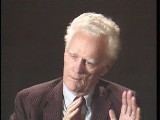
Drexel Sprecher was educated at the University of Wisconsin, the London School of Economics, and at the Harvard School of Law before receiving a position at the US Government's Labor Board in 1938. He enlisted in the American military after the United States declared war on Germany, and was posted to London. After the war, Sprecher served as a prosecutor of Nazi war criminals at the Nuremberg trials.
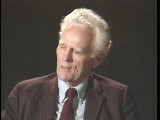
Drexel Sprecher was educated at the University of Wisconsin, the London School of Economics, and at the Harvard School of Law before receiving a position at the US Government's Labor Board in 1938. He enlisted in the American military after the United States declared war on Germany, and was posted to London. After the war, Sprecher served as a prosecutor of Nazi war criminals at the Nuremberg trials.
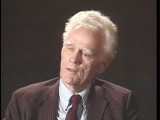
Drexel Sprecher was educated at the University of Wisconsin, the London School of Economics, and at the Harvard School of Law before receiving a position at the US Government's Labor Board in 1938. He enlisted in the American military after the United States declared war on Germany, and was posted to London. After the war, Sprecher served as a prosecutor of Nazi war criminals at the Nuremberg trials.
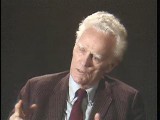
In December 1939, Eddie's father sent Eddie to live with a family in Belgium, a safer place for Jews as it was not yet occupied by Germany. Later, while visiting his father in a camp in France, Eddie was detained. He and his father escaped, but were later deported. Eddie survived forced labor in a series of camps, and with his friend Mauritz "Michael" Swaab, escaped a death march from Langenstein, a Buchenwald subcamp. The two were liberated while on the run.
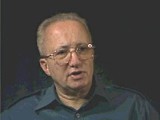
Edward was born to a Jewish family in Hamburg. In 1935, the Nuremberg Laws prohibited marriage or sexual relations between German non-Jews and Jews. Edward was then in his mid-twenties. Edward was arrested for dating a non-Jewish woman. Classified as a habitual offender, he was later deported to the Sachsenhausen concentration camp, near Berlin. He was forced to perform hard labor in construction projects. Edward had married shortly before his imprisonment, and his wife made arrangements for their…
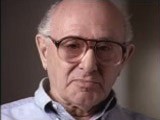
Edward was born to a Jewish family in Hamburg. In 1935, the Nuremberg Laws prohibited marriage or sexual relations between German non-Jews and Jews. Edward was then in his mid-twenties. Edward was arrested for dating a non-Jewish woman. Classified as a habitual offender, he was later deported to the Sachsenhausen concentration camp, near Berlin. He was forced to perform hard labor in construction projects. Edward had married shortly before his imprisonment, and his wife made arrangements for their…
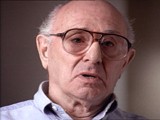
Edward was born to a Jewish family in Hamburg. In 1935, the Nuremberg Laws prohibited marriage or sexual relations between German non-Jews and Jews. Edward was then in his mid-twenties. Edward was arrested for dating a non-Jewish woman. Classified as a habitual offender, he was later deported to the Sachsenhausen concentration camp, near Berlin. He was forced to perform hard labor in construction projects. Edward had married shortly before his imprisonment, and his wife made arrangements for their…
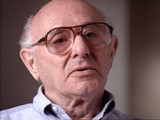
Edward was born to a Jewish family in Hamburg. In 1935, the Nuremberg Laws prohibited marriage or sexual relations between German non-Jews and Jews. Edward was then in his mid-twenties. Edward was arrested for dating a non-Jewish woman. Classified as a habitual offender, he was later deported to the Sachsenhausen concentration camp, near Berlin. He was forced to perform hard labor in construction projects. Edward had married shortly before his imprisonment, and his wife made arrangements for their…
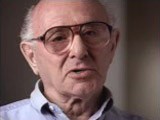
Several of the IMT defendants were charged with exploiting concentration camp inmates for forced labor under harsh conditions, like those described here by Holocaust survivor Edward Adler. Edward was born to a Jewish family in Hamburg. In 1935, the Nuremberg Laws prohibited marriage or sexual relations between German non-Jews and Jews. Edward was then in his mid-twenties. Edward was arrested for dating a non-Jewish woman. Classified as a habitual offender, he was later deported to the Sachsenhausen…

We would like to thank Crown Family Philanthropies, Abe and Ida Cooper Foundation, the Claims Conference, EVZ, and BMF for supporting the ongoing work to create content and resources for the Holocaust Encyclopedia. View the list of donor acknowledgement.